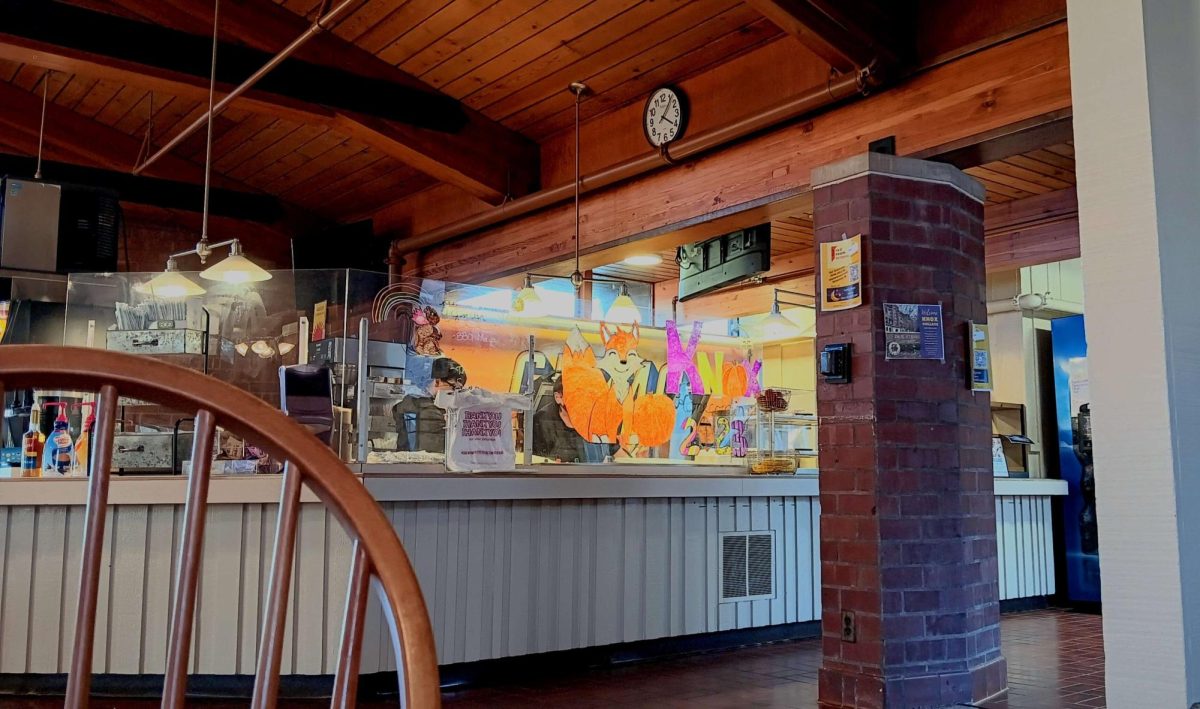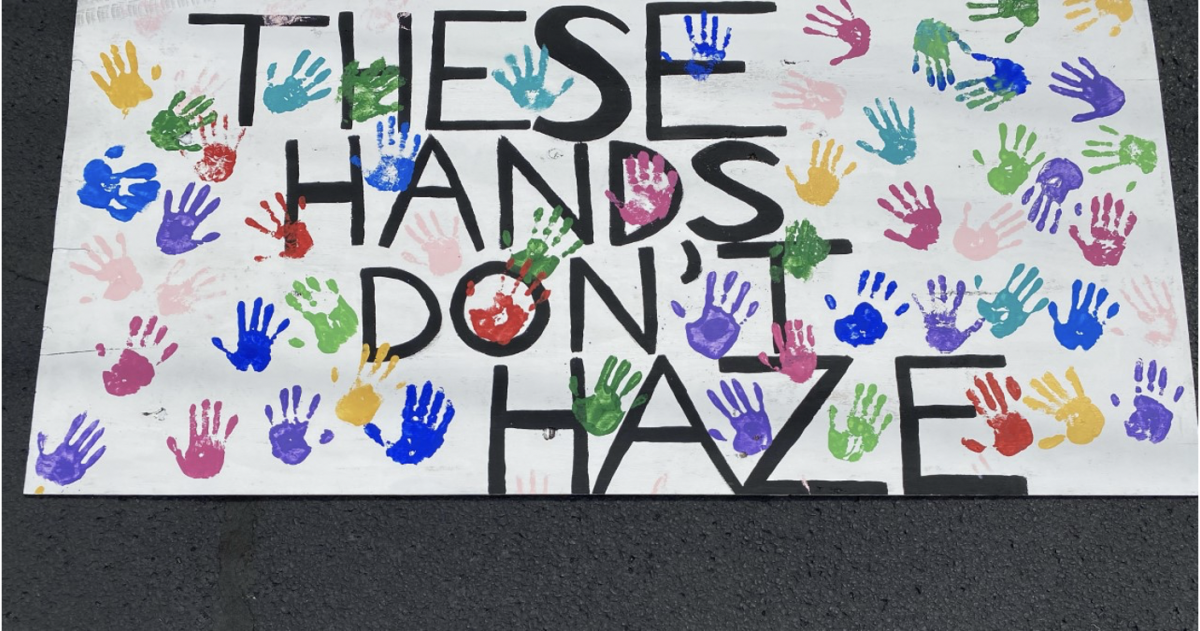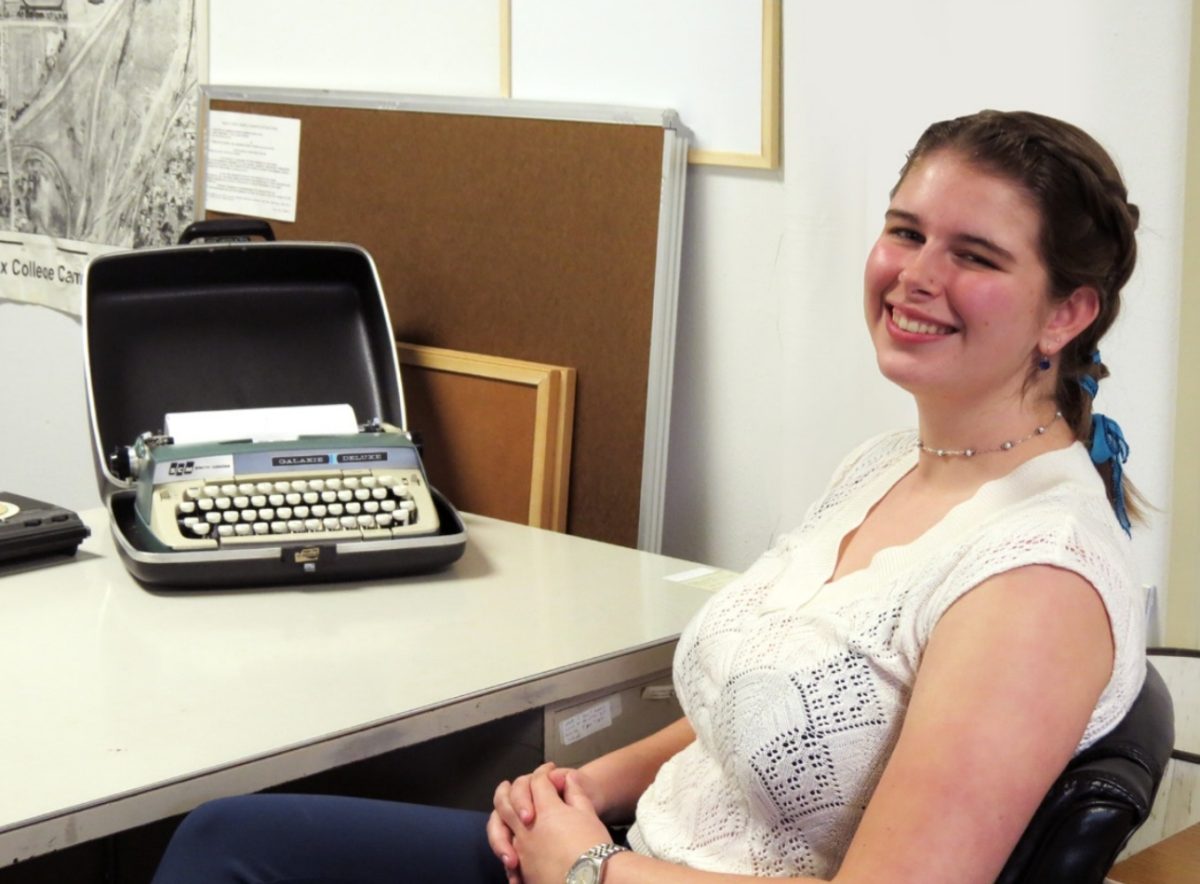During my first night at Knox I heard two people talking in my first language from my dorm window, and for a second I felt like I had never left home. However, that feeling of pride and belonging soon turned into apprehension then disappointment as I continued to learn about Knox’s treatment of students with diverse identities.
As a Muslim student on campus, I spent my first Ramadan surrounded by a community of individuals with whom I formed lasting relationships. However, I also spent that month of fasting being presented with the same meal every single day in the Hard Knox Cafe, as the Gizmo closed at 3 p.m. during the 2021-2022 school year.
The meal was said to be diverse and was given different South Asian names every day, but it looked and tasted the same.
When I was coming to Knox, I was told that Halal and cultural food options exist, but I wasn’t aware that by options, Knox meant the same dish for 30 days, renamed to make them look diverse and unique.
But what does food have to do with supporting different identities?
Food is the most basic necessity for any human being. But cultural food is particularly important for international students, because we exclusively eat cultural food in our countries. Due to this, our bodies are adapted to the textures and flavors of that food.
The transition to college includes adapting to many changes, but students shouldn’t be forced to alter a basic need on top of all the other transitions. Having diversity as a value, Knox’s lack of sustainable meal options for international students is hypocritical.
“It took me so long to get used to the food on campus. It’s usually missing flavor. Back at home, in Nigeria, we make our eggs differently: we don’t put milk or cheese, and my stomach is not strong enough for the Caf eggs,” junior Ada Azuikpe said.
Beyond biological needs, cultural food is also emotionally important for people with different identities. I grew up in Karachi, Pakistan, which is a historic port city in Pakistan. Instead of being known for its history or beaches, it is known as the food capital of Pakistan.
Growing up in that city, food formed an important part of our community interactions. But it also became a coping mechanism for me, which I used in both times of sadness and happiness to uplift my mood. Food is the first step towards making people with different identities feel at home and feel comforted.
“When I tell people about African culture, one of the first things I mention is our food. It’s definitely a huge part of our culture. I did not know what the food was like before I came to Knox, and it would probably change my decision,” Azuikpe said.
The most infuriating part of this, however, is the use of cultural food labels as tokens of diversity.
The Hard Knox Cafe at Knox labels chicken and rice as “biryani,” which is a rich and historic South Asian dish that spreads across the borders of several countries and is almost worshiped in South Asia for its unique flavors.
International students at Knox, including sophomore Bruno Freitas, from Brazil, have also reported feeling hurt by the Caf’s cultural appropriation and mislabeling of cultural food.
“One time the Caf served Feijoada, a Brazilian dish, and they used vegetables, when the dish is supposed to not contain any vegetables. When I brought it up to the Caf, I was told their menu is based on nutrition. What is the basis for that? Who said mashed potatoes every day is nutritious?” Freitas said.
When this issue is brought up in Student Senate General Assembly, the response has historically been that cultural food is different when it is made in the Caf. However, there is a fine line between food tasting slightly different here, and slapping on a cultural label on a food, which is not actually that dish.
Some international students reach a point where they are forced to go off-board and figure out making their own food.
However, being an international student often means working twice as hard to keep your grades up and juggling several jobs to make up for the extra tuition that they have to pay, which makes cooking food or ordering out nearly impossible to manage and/or afford.
“I am a Resident Assistant so I can’t go off-board and doing that can also lose you scholarships,” Freitas said.
Furthermore, most international students also pay more than domestic students due to ineligibility for Federal grants.
Knox is working hard this year to recruit students to make up for the low enrollment. They are also working on ensuring that first-year retention is high. However, the college conveniently ignores the most basic reform it can undertake to connect with students.
The only answer to how Knox can do better is listen to students. Where is our money going when it is clearly not being spent on trying to meet our needs?








